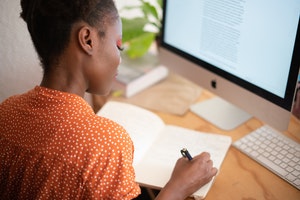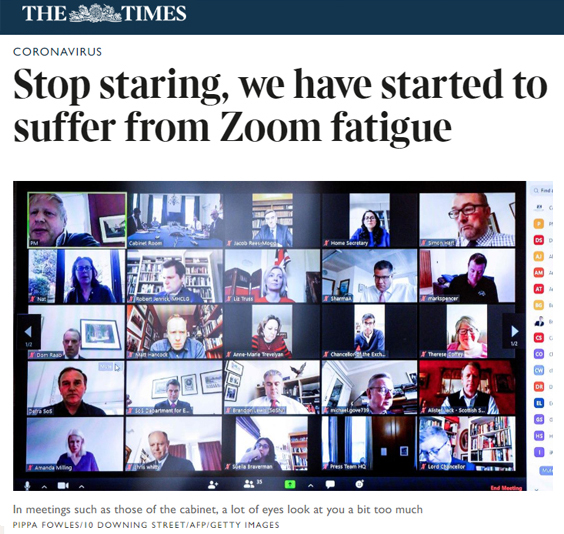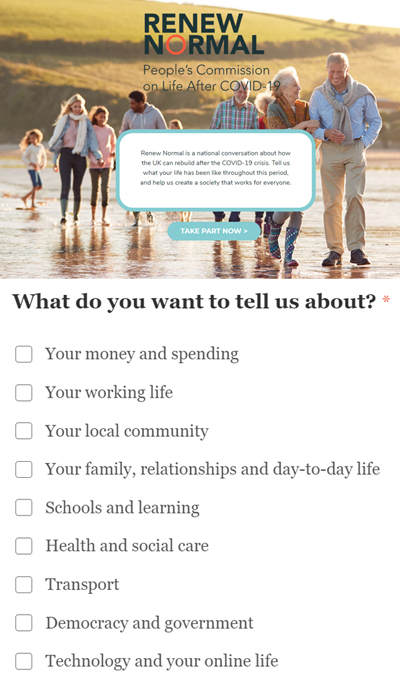By Liza Horan, Editor
The coronavirus pandemic’s legacy will be that lockdown changed togetherness. Just like September 11, 2001, changed airport security, there will be societal shifts and new norms. Meanwhile, everyone is trying to cope day-to-day with so much change and emotion packed into such a short amount of time.

PHOTO/Retha Ferguson, Pexels
Workplace wellness at home
Remote working is being embraced by tech companies and others who are set up to offer it. This brings a host of wellbeing concerns: How to ensure ‘workplace wellness’ when employees are off-site, and how to be most productive at home.
Being “unable to unplug after work” was the top complaint by remote workers during lockdown in a study by the World Economic Forum, while another study by recruitment firm Hays revealed such workers’ wellbeing sank primarily due to lack of social interaction, isolation and loneliness. “With millions of Britons now working remotely, many from home, employers will need to consider the effect [it] is having on their staff,” according to Hays, whose study found 66% of professionals “rated their wellbeing as positive before restrictions were put in place, but only 34% said it remained positive since lockdown. Those who rated their wellbeing as negative rose from 6% to 23%,” Daily Business reported.
“Over three-quarters of professionals who responded to the survey believe that their employer has a responsibility to look after their wellbeing, but this doesn’t seem to be happening during the lockdown. The old ways of office life and working are unlikely to return for a long time, if at all. We need to start changing our workplace mindset, both physically and mentally,” he said.
Remote working could end “social jetlag”
As we work remotely, flexible hours may become an issue as some people are morning larks and others night owls. This phenomenon is natural as part of one’s circadian rhythm, and research is proving that one’s “chronotype” informs when you do your best work.
“Flexible work schedules are currently not the norm, but sleep experts believe they should be,” Rachel Hall wrote in The Guardian. “For 15 years, Camilla Kring has run B Society, which advises companies around the world on how to implement ‘chronoleadership’ – the idea that they should adapt their work patterns to suit the sleeping schedules of their employees, rather than the other way around.”
Each person is of a certain chronotype, part of their circadian rhythm, that reveals when their peak performance occurs. When that doesn’t fit society’s demands on their time, the result is “social jetlag,.” Circadian biologist Till Roenneberg, who developed the Munich ChronoType Questionnaire, names the term. “There is practically no health factor that has been looked at that does not become worse with increasing social jetlag,” he told Hall.
Understanding circadian rhythms and aligning our lifestyles to them is among the top wellness trends of the future, according to the Global Wellness Institute. As remote working grows and more research emerges, the 9-to-5 workday may be remembered as a pre-pandemic relic.

“Zoom fatigue” is real
As the world tuned to Zoom video conferencing during lockdown, a new health concern emerged. “In the past month, Zoom fatigue has begun to be referenced more widely — among tired and stressed social media users, but also among psychologists, who are beginning to study the effects not just of social distancing, but also of socialising at a distance,” Tom Whipple wrote in The Times. This is due to being watched but having no actual eye contact; the sensation of looking into a mirror for an extended time; and experiencing a lag on social cues, which are key to successful communication and behaviour.
Avoid multi-tasking, take breaks, and ask non-speakers to turn off video are just a few of the tips to avoid Zoom fatigue offered in this Harvard Business Review story.
“Most of our social roles happen in different places, but now the context has collapsed,” says Insead professor Gianpiero Petriglieri, whose focus is sustainable learning and development in the workplace, told BBC Worklife. “Imagine if you go to a bar, and in the same bar you talk with your professors, meet your parents or date someone, isn’t it weird? That’s what we’re doing now… We are confined in our own space, in the context of a very anxiety-provoking crisis, and our only space for interaction is a computer window.”
Mental wellbeing may take time
Overall infections are subsiding, but the pandemic crisis has a longer lasting imprint: mental health.
“As a fragile normality slowly returns, many mental health experts are asking the inevitable questions: what will be the long-term emotional and psychological cost of such a sudden and seismic disruption of our way of life?” Sean O’Hagan posed in his article on the topic in The Guardian. He quotes a few psychologists including grief counsellor Julia Samuel, who is the best-selling author of Grief Works: Stories of Life, Death and Surviving. She said, “Trauma occurs when you are overwhelmed by an event that you cannot process. While the crisis is happening, you are in it and everything is uncertain and unpredictable. You don’t have the emotional freedom to allow yourself to process the trauma, so it is held in the body. The most common reaction is to shut down and just exist somehow. It is only when the external world becomes more safe and predictable again that people may feel able to reach out for support.”

Public invited to shape post-pandemic life
As lockdown eases, the public is invited to contribute to “the largest ever public conversation on the future of the U.K.,” according to think tank Demos, which is seeking participation by 1 million people in an online survey at RenewNormal.co.uk.
“The commission will try ‘to find ways to hold on to the changes we value — from increased community connection to reduced air pollution — and heal the damage that has been caused, from unemployment to loneliness,'” Ben Webster wrote in The Times. The Demos press release has more details.
More severe symptoms with blood type “A”
Blood type has been found as a genetic variable that determine severity of symptoms from the virus. BoingBoing summarised reports in this story: “According to a new study published in medRxiv, people with Type A blood who have Covid-19 are linked with having a 50% higher chance of ending up on oxygen or a ventilator.”
Worldwide Covid-19 tallies stand at more than 6.9 million cases and more than 400,000 deaths, according to the WHO.

Comments